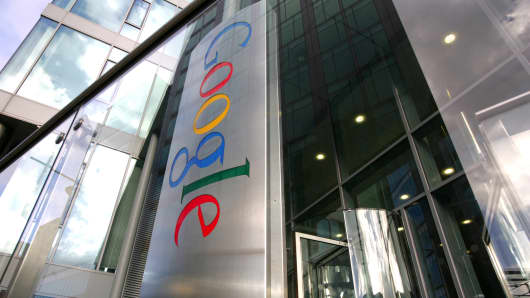Google has aggressively avoided paying corporate tax in Britain and its international reputation will be damaged until it starts to pay what it owes, a U.K. parliamentary committee said in a damning report on Thursday.
The 64-page report by the U.K.'s Public Accounts Committee, a body charged with investigating Google and other companies over their tax affairs in the U.K., said that the company was guilty of using an "artificial tax structure" and putting the "enormous profit" derived from the U.K. out of reach of the U.K. tax system.
Google has repeatedly denied any wrongdoing in its tax affairs, telling a committee hearing in May that its U.K. advertising sales took place in Ireland, a country with a lower corporate tax rate of 12.5 percent compared to the U.K. rate of 22 percent.
The Public Accounts Committee said the tech giant's argument was "deeply unconvincing."
"To avoid U.K. corporation tax, Google relies on the deeply unconvincing argument that its sales to U.K. clients take place in Ireland, despite clear evidence that the vast majority of sales activity takes place in the U.K," the report summarized.
Google generated $18 billion revenue from the U.K. between 2006 and 2011 but the company paid the equivalent of just $16 million of U.K. corporation taxes in the same period, the report noted, adamant that Google's intentions were to avoid tax.
"It is quite clear to us that sales to U.K. clients are the primary purpose, responsibility and result of its U.K. operation, and that the processing of sales through Google Ireland has no purpose other than to avoid U.K. corporation tax," the report added.
(Read More: Backlash as Starbucks UK Tax Avoidance Revealed)
It added that "this elaborate corporate construct has damaged Google's reputation in the U.K." and that public confidence in Google would only be restored when it establishes a corporate structure that ensures Google pays tax "where it generates profit."
"This should be addressed as a matter of urgency by Google and other companies with a similar corporate structure," the Committee stated, adding that it would "pursue this issue over the course of the Parliament."
(Read More: Here's Why Google Could Disappear in Five Years: Pro)
The report also criticized accountancy firms for abetting tax avoidance by promoting "artificial tax structures" to firms such as Google, "rather than to reflect the substance of the way business is actually conducted." The U.K. government's own tax department, HM Revenue and Customs (HMRC), also came under fire.
"HMRC is hampered by the complexity of existing laws, which leave so much scope for aggressive exploitation of loopholes, but it has not been sufficiently challenging of the manifestly artificial tax arrangements of multinationals. HM Treasury needs to take a leading role in driving international action to update tax laws and combat tax avoidance."
In May, the Committee chairwoman Hodge accused Google of betraying its "don't be evil" motto and using "devious, calculated and unethical behavior" to avoid tax.
"You are a company that says you do no evil, and I think that you do do evil in that you use smoke and mirrors to avoid paying tax," she said.
- By CNBC's Holly Ellyatt, follow her on Twitter @HollyEllyatt



